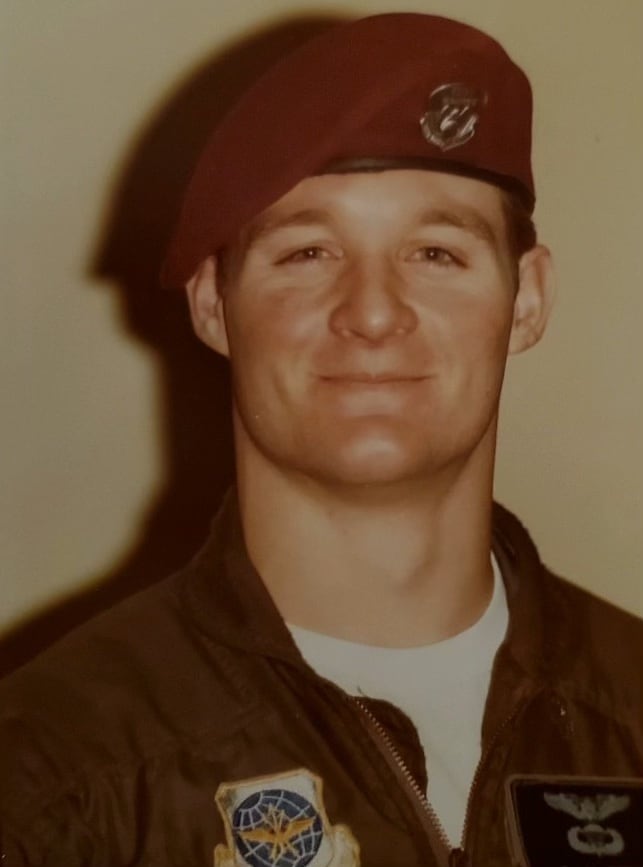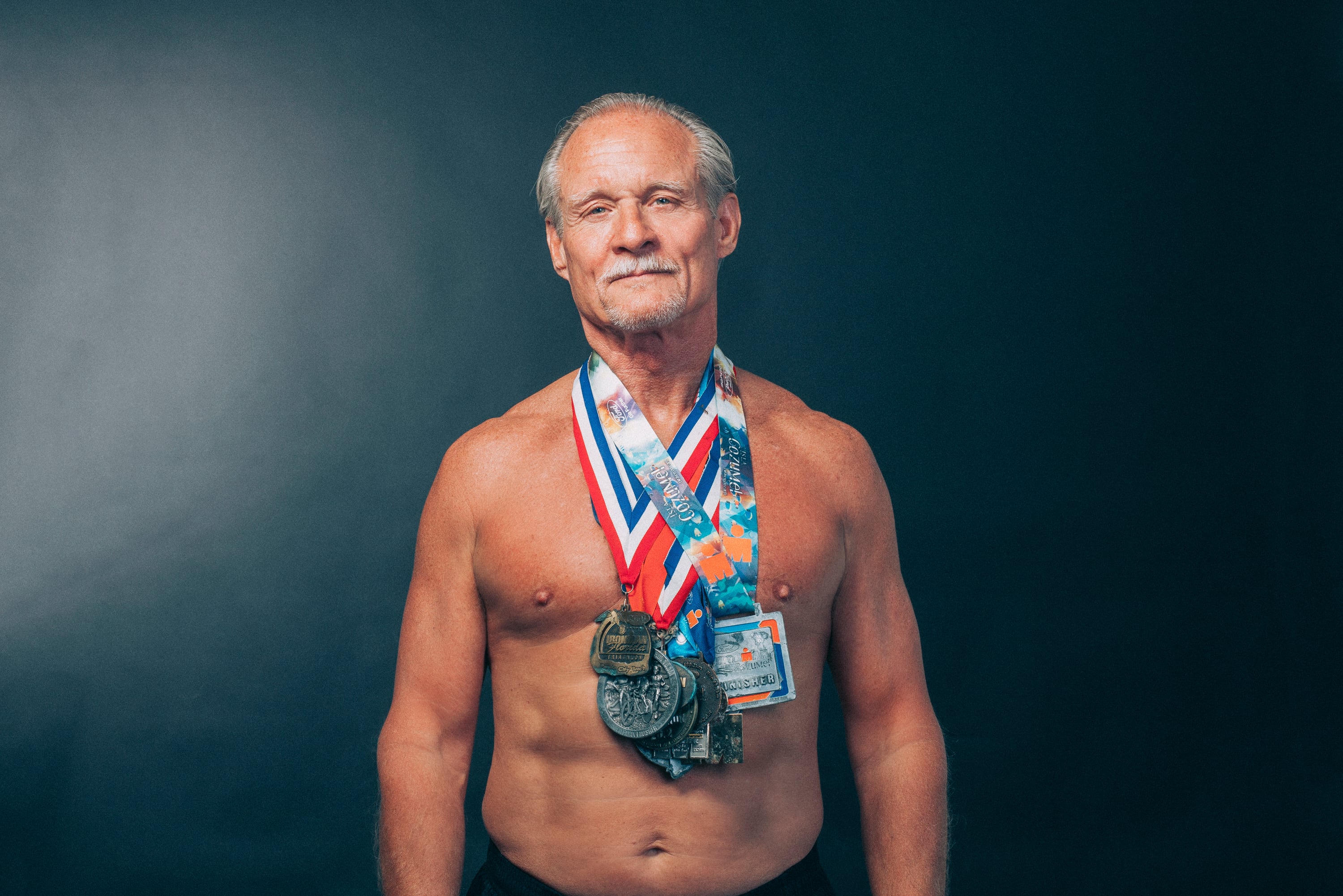Row three hours, rest three hours. Row three hours, rest three hours.
That is the current daily routine of Robert Hamilton Owens, a 71-year-old Air Force veteran who, alongside a crew of 11 others, is spending 40 days rowing approximately 3,500 miles across the Atlantic Ocean.
Owens and his crew, which include a policewoman from Norway and an ex-British Army soldier, departed from the Canary Islands on Dec. 4 and are destined for the island of Antigua in the Caribbean. The challenge, officially coined the Talisker Whisky Atlantic Challenge — although Owens and his team are not competing in the official competition — will test the group’s ability to work as a team, to weather the highs and lows of transiting the Atlantic in a rowboat, and to push themselves beyond what were once their mental and physical limits.
For Owens, it’s one part of what he hopes to do prevent veteran suicide.
Pararescue
Before Owens became a career motivational speaker and avid Ironman competitor, he spent his youth in Orange County, California, with his adopted family. No one would have guessed back then what he would later be physically capable of. He was, after all, considered “special needs” due to a physical disability that put him in corrective leg braces into his tween years.
But while Owens may have struggled to play kickball with his classmates, he was an ace in the water, eventually training with famed U.S. Olympic swim coach Jon Urbanchek in Anaheim. When he wasn’t swimming or lifeguarding, Owens spent his time racing outrigger canoes from Long Beach to Catalina with the Dana Point Outrigger Club.
At 18, Vietnam was raging, but Owens, by his own admission, avoided the draft by ensuring the Army would find him medically unqualified to serve in Vietnam. He had no desire to go to war, he said, especially after seeing brothers and friends come home in boxes.
“I made sure that I had a water polo injury in my elbow,” Owens said. “I smashed it into a wall for a long time.”
Two years later, however, Owens had a change of heart. When he was approached to go into Air Force special forces, he said yes, purposely neglecting to tell the Air Force that the Army had found him disabled.

The training would be grueling, but as a longtime lifeguard with sea patrol experience, the idea of going into the military in a lifesaving capacity was much more appealing to Owens than potentially having to take lives. He managed to make it through the six-month training course and earned his place as an Air Force pararescueman.
It was a perfect fit for Owens, who enjoyed the challenge of pushing his body and mind to the limit in some of the most extreme conditions, like when he rescued climbers stuck on Alaska’s Mount Denali, the highest mountain in North America.
Just into his second tour, however, Owens decided it was time for a change and opted to leave the Air Force. The branch was “making budget cuts,” he said, and his sights were turning toward the G.I. Bill and school.
New Challenges
Out of the military, Owens focused on other physical feats, undertaking intense tests such as the World Marathon Challenge, in which participants complete seven marathons on seven continents in seven days.
Owens also tapped into his experience in becoming a motivational speaker who discusses leadership and overcoming physical and mental obstacles, having done so with organizations such as the National Football League’s New York Jets and Baltimore Ravens, the Philippines’ Joint Chiefs of Staff and the South African Parliament.
Owens was already looking to tackle the rowing challenge when his good friend and fellow veteran, Mark Crampton, passed away this past spring. The loss of Crampton, a retired Navy SEAL who took his own life in April 2022, proved to be one crushing loss too many for Owens, who categorized his experience with suicide as “significant.”
“That’s when I said, ‘I’m taking Mark with me’,” he said of his reason for doing the trip. So, while funding for the expedition is being spearheaded by the Courage Foundation, an organization that helps veterans with post-traumatic stress disorder transition back into the civilian world, the trip is also meant to raise awareness and funds to fight veteran suicide.
That battle instills Owens with the mental fortitude to get through any challenge, he said. Last year, he was set to participate in the Florida Ironman race. But because of an earlier battle with COVID, Owens’ lungs were weaker than usual. He was struggling to swim and breathe, so he made the decision to pull out of the race. After turning to a pulmonologist for help, he now feels back in the game.
“There’s something about mental resiliency that comes with time, and there’s something about confidence that you know how to adjust under pain,” Owens said. “And if you train with pain, you make it your friend. That friendship never leaves you.”
To prepare for the journey, Owens said he has continued participating in Ironman competitions and recently completed a half-Ironman in October. The past months were spent rowing, doing Pilates and focusing on exercises that strengthen his lower back, glutes, hamstrings and quads.
Surprisingly, Owens has only trained with his team once, during a trip to Scotland earlier this year, when they spent seven days in the North Sea rowing together. Safety classes were also given, during which time Owens learned how to use specific medical kits the crew would have access to on board.
The crew then learned about the navigation system on the vessel, a self-righting Rannoch that should re-orient itself in the event it flips. There are two cabins on the front and back of the boat, Owens said, and those are air-locked to protect the crew in case of truly severe weather. While water is one of the items packed onto the small boat, the vessel also comes with a water-maker that desalinizes ocean water, a process helped by solar panels located on the vessel’s topside. These also power phones and anything else that requires a plug.

Over the almost two-month period, Owens and his crew will be dining on freeze-dried food, similar to those eaten by astronauts or hikers taking on the Appalachian Trail.
Despite admitting he’s nervous for the expedition, Owens remains steadfast in his determination to complete the challenge — and, to honor Mark.
“When Mark Crampton did what he did, it was just too close,” he said. “He didn’t talk to us. He didn’t share and open up about the snakes in his head. I just thought, ‘Of all the people, not Mark.’”
Today, Owens believes there’s a chance he could have helped Mark. That, he said, sticks with him.
The Mark Crampton Memorial Trans-Atlantic Row will help raise awareness for veterans who die by suicide. It will also help raise funds for private therapy for veterans struggling with current Veteran Affairs programs, Owens said. Not only will the veterans involved get professional help, but they will also be able to partake in group rowing sessions where they can work through mental obstacles while spending time with a team of fellow veterans.
“Strong people are not afraid to ask for help,” Owens said. That’s exactly what he’s hoping this trip can provide.
Rachel is a Marine Corps veteran and a master's candidate at New York University's Business & Economic Reporting program.



